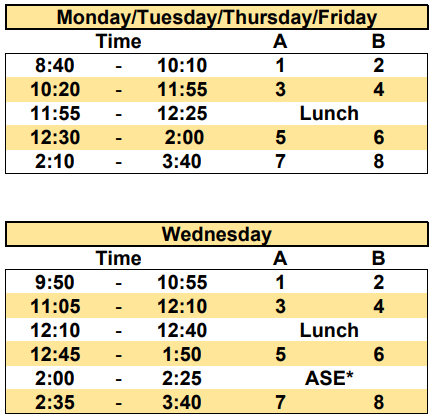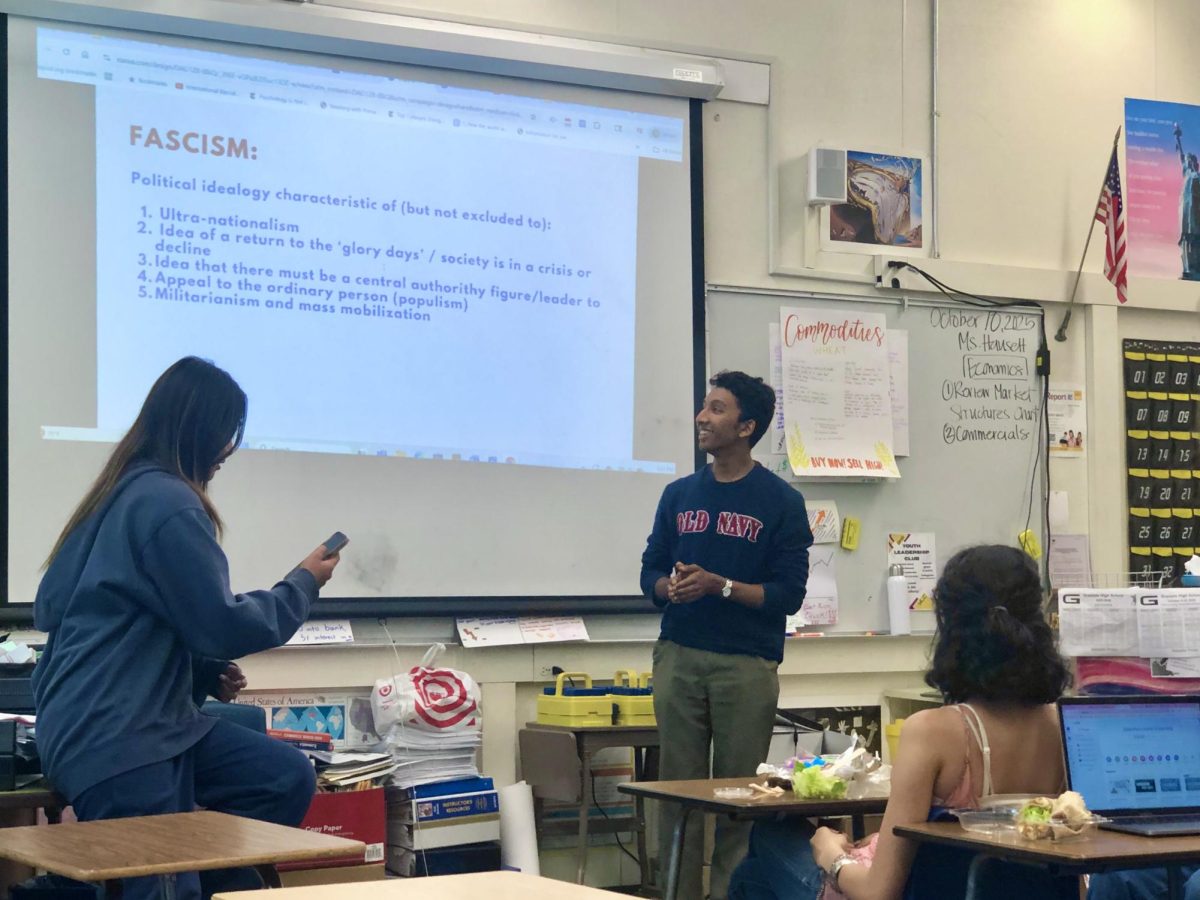
For 50 years, Granada has operated on a trimester system. But with the new school year started comes a huge change: semesters. As more high schools make the jump to a more college-like structure the Livermore Valley Joint Unified School District has decided it’s time to join the trend. But, semesters are more than just a trend; it’s a major shift in how Granada students operate day to day.
When the schedule change was announced last year, there was a lot of shock and pushback from the Granada community. One student, Trinity Singley, now a senior, says that she thought, “…no way this was going to happen…I was very skeptical [about] how little student advice or comments they were asking for.”
But, the administration has stayed steadfast in their reasons for switching to semesters. The biggest benefit to semesters, according to Principal Conover, is more time with teachers. Although students may not see their teacher every day, they will have that teacher for the full school year.
Under the trimester system, you were unlikely to have the same teacher for the entire course, let alone having the course two trimesters in a row. Principal Conover explains further, “Having the same teacher for both halves of the course is an advantage…with the semester system [you have] the same teacher all year long, 99% of the time, and that’s more time.”
While homework is always a concern among students it’s worse now that students may have up to eight classes assigning homework at once. But, with a day between classes, students have extra time for work. Conover adds, “It definitely takes more time management…my recommendation is to do the homework the night that it was assigned.”
Conover further states that if you get assigned homework, for example, on an A-day, do it that night, and the next day, if you have questions, you can talk to your teacher before the homework is due. “The best part of our schedule now is having the day between classes, if used right, to do the work and let it sink in before the next day.”
Singley, who was apprehensive about semesters, feels that her opinion has changed, “I don’t hate it…I think that there is more time to do homework.” For some students, the extra day could be very helpful in completing homework.
One of the largest victims of the semester system? Electives. According to Principal Conover, there has been “…more conflicts with where [courses] are…the example would be Algebra 1A and Algebra 1B. With a trimester system, I put Algebra 1A trimester 1 or trimester 2. With our semester system, I can only put Algebra 1A semester 1. So, there’s not as many places to put [courses].”
Students have felt the loss in classes. Singley, who currently has six classes, tried to sign up for more electives but couldn’t because there were so few available during 7th or 8th period. She says, “the worst part is how many electives got cut…it seems all of the periods where there would be electives people are just getting empty periods instead.”
Semesters was a controversial choice and being only three weeks into the school year it’s hard to say whether it was a good one. Will students truly benefit from this schedule? Will teachers have more time to work on material with their classes? Are the cut electives forever lost?
According to the University of Connecticut, in a study evaluating different high school schedules, “Block scheduling may offer teachers more time to build relationships with students, but there is not strong evidence that it increases student achievement…Not only is there a lack of research overall, but the results that do exist show that there are both advantages and disadvantages to block and traditional schedules.”
For now, semesters are what we have. If Granada wants to keep up with the changing world of high school academia, as more schools switch to semesters, then we’re on the right path. We’ll have to wait and see how Granada’s first year of semesters plays out.




























